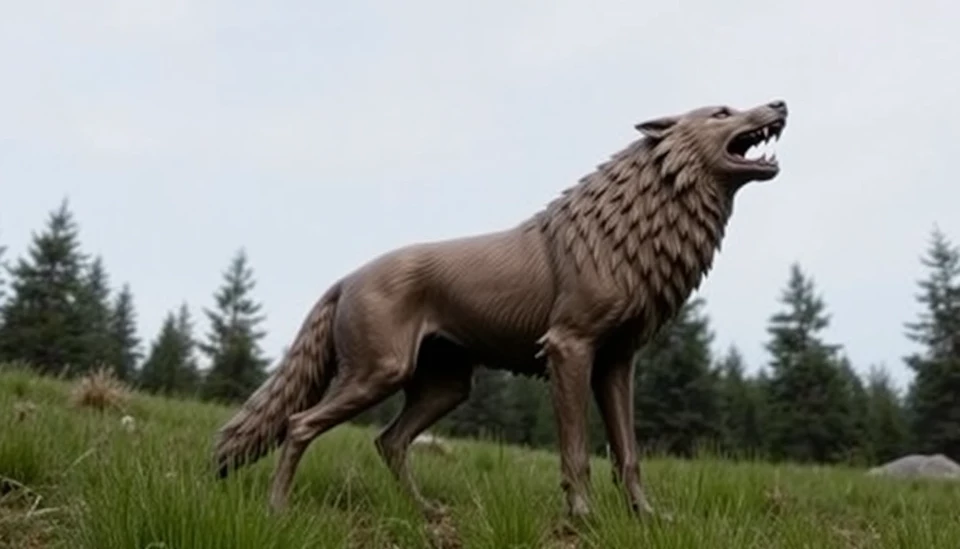
A groundbreaking startup focused on de-extinction, with an astonishing valuation of $10 billion, is making strides toward resurrecting the iconic dire wolf. Known for its significant role during the Pleistocene epoch, this ferocious predator will soon make a comeback, thanks to innovative genetic engineering and advanced biotechnology techniques employed by the groundbreaking firm.
Founded with the ambitious goal of countering biodiversity loss, this startup is harnessing the power of CRISPR technology to edit the genes of existing species to emulate that of the extinct dire wolf. By studying ancient DNA, researchers are meticulously piecing together the genetic makeup that characterized these majestic creatures. The dire wolf, which roamed North America during the last Ice Age, has long been a symbol of the vast megafauna that once inhabited the planet.
Investors are flocking to the venture, driven by a growing public interest in conservation and a fascination with de-extinction projects. The startup's lofty valuation reflects this enthusiasm, marking it as one of the highest-valued companies in the biotech sector. The funding will be utilized for further research, expanding their team of scientists, and developing the necessary technologies to ensure a successful and ethical recreation of the dire wolf.
The implications of reviving such a species extend beyond mere curiosity about the past. Establishing stable populations of dire wolves could potentially restore ecological balances disrupted by the loss of such apex predators. Furthermore, the initiative can serve as a strategic method to engage wider audiences in conservation efforts, showcasing real-world applications of genetic technology in restoring Earth's biodiversity.
However, this ambitious project isn’t without its challenges. Critics caution against the potential risks associated with introducing a long-extinct species back into an ecosystem that has drastically changed since their disappearance. The ethical considerations—whether it is right to bring back a species that is no longer adapted to current environments—are fiercely debated among scientists, ethicists, and conservationists alike.
The startup plans to address these concerns proactively, working closely with ecologists and environmentalists to develop guidelines to ensure that the introduction of dire wolves is managed thoughtfully and sustainably. Their mission transcends just the revival of a single species; it aims to foster a broader dialogue about biotechnology’s role in environmental restoration and the responsibilities that come with it.
As research progresses, the team's dedication to transparency and collaboration with the scientific community is expected to play a crucial role in shaping public perception of their work. With several ambitious milestones ahead, the upcoming years will be pivotal in determining the success of this daring venture into de-extinction and its impact on future wildlife conservation initiatives.
In a world grappling with climate change and biodiversity loss, the resurrection of the dire wolf signifies both hope and challenge—a reminder of humanity's profound capability to alter the course of nature, for better or worse.
Stay tuned for updates as the team continues to navigate the exciting and uncharted waters of genetics and conservation. The journey to bring the dire wolf back from the abyss of extinction is just beginning!
#DeExtinction #DireWolf #GeneticEngineering #Conservation #Biotech #Biodiversity #CRISPR #WildlifeRestoration
Author: Sophie Bennett




